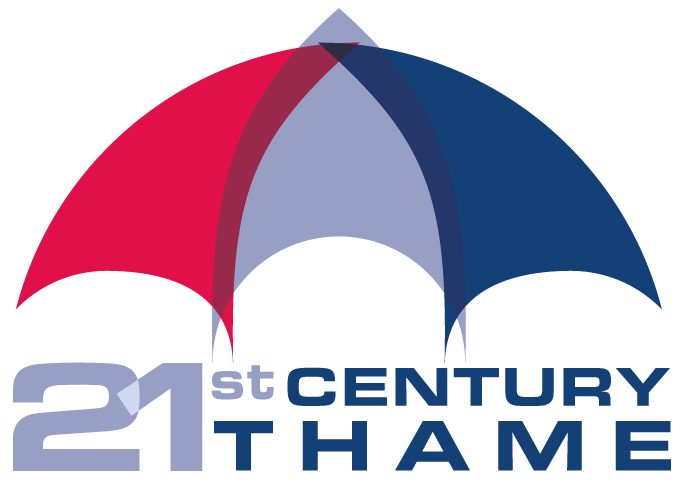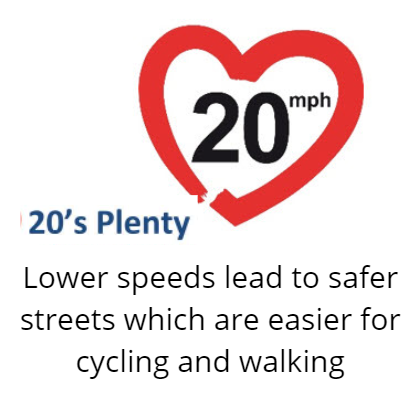
Windles is a long-established local business, first sited in Long Crendon from 1989 before moving into a purpose-built site on the outskirts of Thame in 2016. It has grown to provide employment for 140 staff and specialises in commercial printing including greetings cards.
Moving to a New Site
Windles experienced various inevitable challenges when they created their new, purpose-built industrial plant on a greenfield site. As is common in commercial development, the interests of the company itself, and those of the growing local population seeking nearby employment options, inherently conflicted with the community’s aspirations to preserve the natural landscape and biodiversity of the area. In response to this, and as the plant was being built on agricultural land, Windles knew it was essential to protect the future of the wildlife already inhabiting the land, which would be displaced from the area once construction began. Special consideration needed to be given to a sett, home to around 14 badgers, in the main intended building area, and a nearby roosting site for pipistrelle bats, which are a legally protected species.
Protecting Bats
The pipistrelle bats had been residing in the adjacent farm buildings, however their existing flight paths would have been disrupted by the factory once erected. To allow a free flight path, the bats were encouraged to roost in a carefully adapted shed. The shed had native planting positioned in its immediate surrounds and special features such as raised tiles and gable ends were added to optimise its suitability for a bat colony (see image 1. below for reference). Female droppings were also rubbed into the beams to improve the chances that the bats would choose to move in. Bruce Podmore, Windles’ managing director and owner, explained that the shed could not initially be disrupted to ascertain whether the bats had moved in. Three years after its creation, however, there was clear external evidence that it had been adopted as a new site.
Image 1. New shed built for bats to roost in
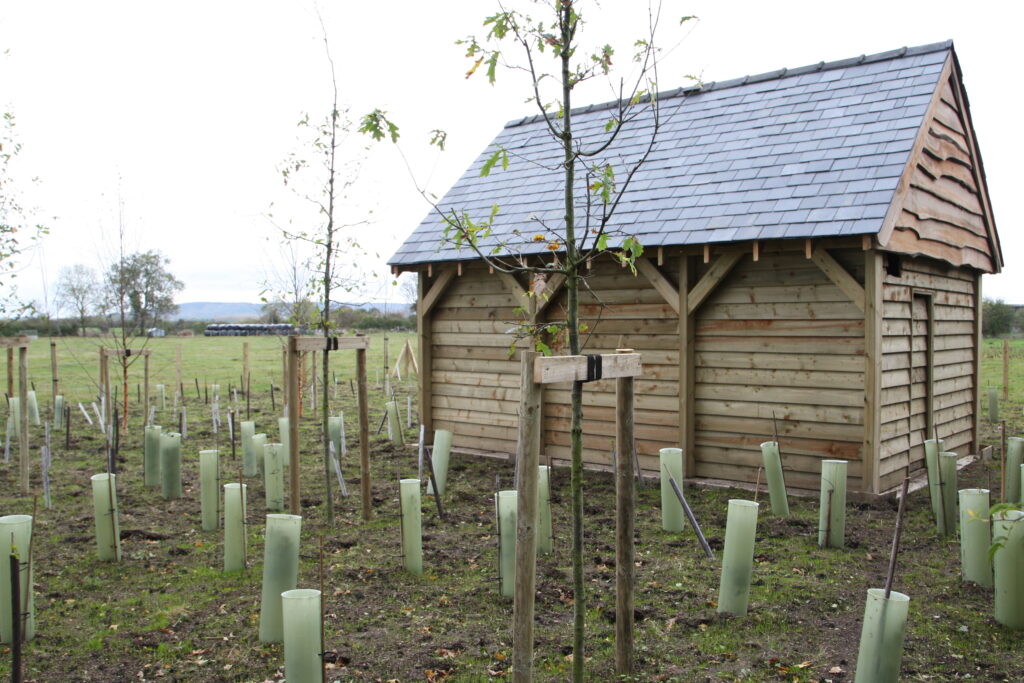
Protecting Badgers
The badger community on the site was free of tuberculosis, and given their highly territorial nature, it was advantageous to retain the TB-free badger population in the local area and to discourage incursions by potentially infected new badgers. In order to do this, Windles organised the movement of 180 tonnes of soil to create a new sett a short distance away, comprising a complex tunnel network and multiple entrances (see image 2. below for reference). The badgers were encouraged to inhabit the constructed sett by professional transportation of a couple of female badgers to the habitat, as well as the provision of attractive food.
Bruce stressed the importance to the company of not just doing the minimum required to preserve a habitat for the mammals, but to committing to a successful outcome for them. This required several years of liaison with wildlife specialists, lasting from before construction started until some years after the company had transitioned into the new location.
Image 2. New sett built for badgers
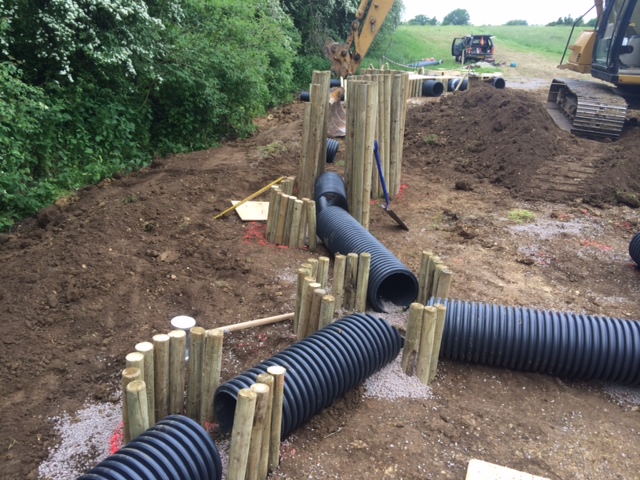
Planting Trees
Windles extensively planted native tree species along the frontage and access road to its premises (see image 3. below for reference). The trees, including ash, oak, beech, holly, rowan and hawthorn, are now maturing nicely on a slightly raised frontage, providing an attractive view at the front and side aspects and encouraging a range of birds. There is an on-site wormery to supply natural fertiliser. Bruce discussed that it was important to the company to use indigenous species, despite the longer timeframe for them to become established, so that the site would remain as beneficial as possible for wildlife impacted by the conversion of the site to industrial use.
Image 3. Native trees planted on the site
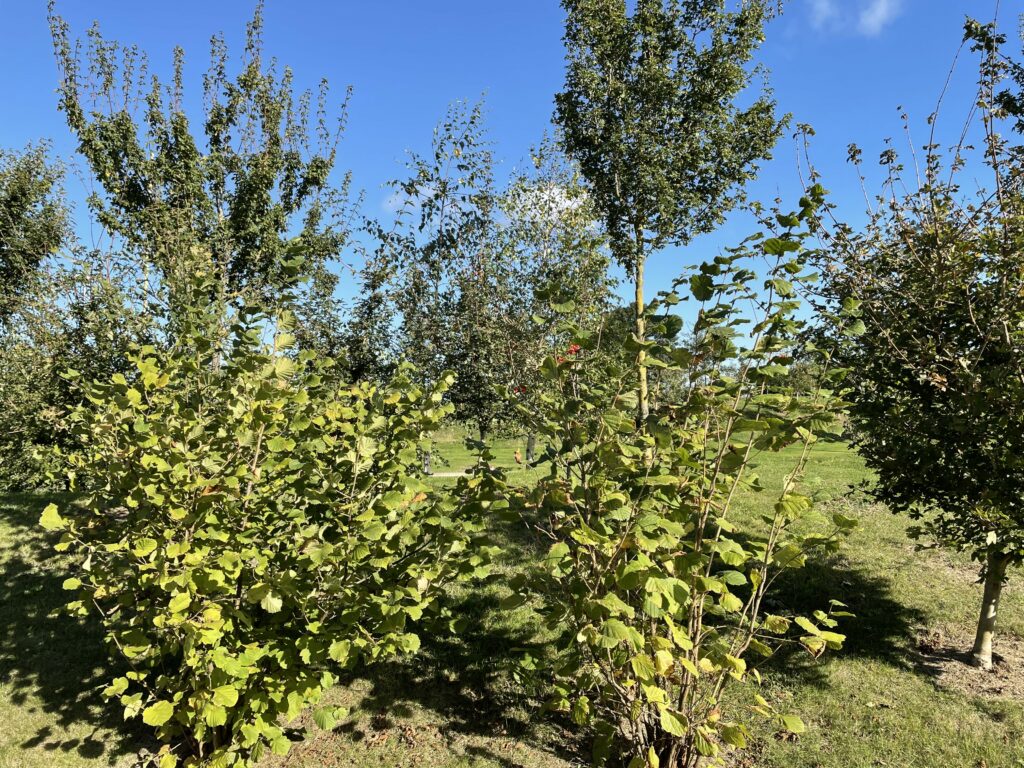
Sustainability Initiatives
Outside of its extensive flora and fauna initiatives, sustainability is key to doing business at Windles. They now convert all used pallets into pellets to supply energy for the factory, using an on-site biomass burner. Bruce emphasised that sustainability goals are everyone’s concern, at all levels of the company. This approach has led to fruitful ideas for emissions reduction coming from staff in many different roles. These include small-scale but locally impactful changes such as minimising truck movements, promoting lift-sharing, and gradually increasing the proportion of staff who live within Thame. Larger-scale achievements include winning industry innovation awards for the deplasticisation of greetings cards and the use of easy-peel labels.
Looking to the future, the company hopes to continue attracting employees from within Thame, and they are also excited about the potential development of a new wind turbine on site, allowing them to have a clean and renewable energy source.
Windles are very happy to welcome visitors from other businesses to share strategies and knowledge in relation to progress towards net zero.
More information about Windles’ sustainability changes to production and transportation is available in very detailed format on their website at https://www.windlesgroup.co.uk/
